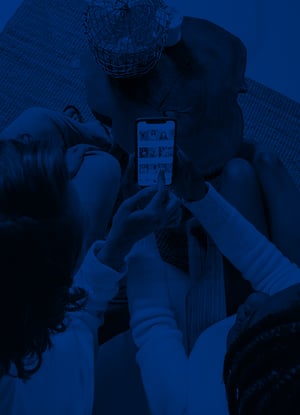The idea of removing likes from social media is rocking the foundations of online interactions, influencers, and social media marketing. Earlier this year, Instagram began removing likes from the interface in seven countries including Canada and Brazil. Now it looks like the social media monolith, Facebook, is ready to follow suit. But what does removing likes actually mean, and what is the true impact on brands and advertisers and social media marketing?
How are Likes Being Removed?
Actually, likes aren't gone for good. In countries and on platforms where likes are being 'removed', really they are just being hidden. Users can still click the 'like' button and see a preview cluster of other users who have also liked. But users can no longer see the like count. Creators can see the like count on their own content, but can't see how many likes other posts have received. And others can't see how many likes a creator has received on their posts.
So likes aren't gone. Like-counts aren't gone. Bue like-count comparisons are gone which is a big change in social media marketing.
Why are Likes Being Removed?
A few different reasons have been given for why Facebook and Instagram, among other bandwagon jumpers, are removing public like-count visibility. The most philanthropic reason given is to help people disconnect and worry less about comparing their content to others based on like-count alone. What gets likes, what goes viral, isn't always the best quality content. And young people worrying about getting the most likes have entered unhealthy spirals of auditing, deleting, and photoshopping their content to compete. Not to mention the depression that often results from not reaching like-count goals or getting fewer likes than someone else.
Another, less philanthropic, reason given is that the depression caused by losing the 'like contest' results in a drop in content shared and a drop in the euphoric responses to advertisers. People who are caught up in getting more likes are more likely to be depressed, angry, and even get disillusioned with platforms that are trying to build themselves as advertising marketplaces. Removing likes will theoretically encourage users to post and to be happier using the platform, therefore become better and more interactive consumers.
Reactions so far
Responses to the changes have been mixed, from what can be perceived on the outside of the data. So far, Instagram has not chosen to share their results on the experimental country-by-country like hiding efforts. However, public responses and individual account have made some interesting reports.
One widespread response is that the rate of likes shared is dropping rapidly. In countries and on platforms where likes can't be seen, fewer people are motivated to share their likes. There's less motivation to jump onto something viral. Perhaps because users can't 'see their vote' as the count ticks up and perhaps because the force of the visible social crowd is fading.
On the plus side, it's also been reported that creators are inspired to get more creative with their content with the pressure of like-competition and the desire for more 'organic likes' increasing.
Impact on Advertising with Likes Removed
For a wide range of influencers, advertisers, and social media creators, the hidden likes situation does reduce the number of likes received. But it also removes the point-to-point comparison that has put advertisers at a disadvantage compared to more viral rivals. Users are now seeing content without the crowd's opinion to influence their own. They will still see a preview of a few key players who have liked but will be unable to say "Brand A got 3,000 likes and Brand B got 300, so Brand A must be better" which is a fallacy that this change will cure.
The hiding of public like-counts is changing the game. Brands won't be able to ride on a large online audience or viral stylings alone. This change will force advertisers to change their tactics, perhaps toward more effective action-inspiring influence and less ephemeral like-gathering methods.
What Can You Do to Stay Competitive without Likes?
If you are in a location where likes have already been removed or are anticipating this very serious change, it's important to contemplate advertising methods going into the future. If likes are no longer the name of the game, psychology and more in-depth engagement will become more critical. Many brands are becoming more creative as a result and braver about posting experimental content because it won't immediately be subjected to the like-count comparison.
You can and should still track your metrics on social media content performance, including the like count. But the social media marketing days of comparing your metrics to those of competitors and influencers may soon be behind us. For more insights into how the latest social media trends and how to adapt, contact us today.

.jpeg?width=200&height=200&name=pexels-mikhail-nilov-6893349%20(1).jpeg)


.jpeg?width=318&height=135&name=pexels-cottonbro-studio-4065876%20(1).jpeg)






